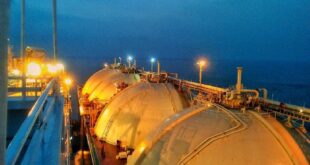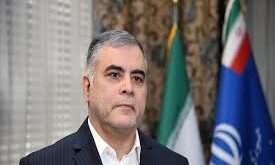Talks between Ukraine’s state oil and gas monopoly Naftogaz and its Russian counterpart Gazprom came to no resolution regarding the conflict over gas supply and transit contracts.
The two opponents plan to go back to the Stockholm court.
Gazprom reportedly filed documents to the Arbitration Institute of the Stockholm Chamber of Commerce seeking to break off all gas contracts with Ukraine.
But posting documents to an international court is not enough to get out of a legally binding contract. Naftogaz said in a statement released on April 20.
“The contracts don’t provide for unilateral termination. They are valid and will end in 2019. They can be terminated prematurely only by bilateral agreement of parties or by decision of a court.“ the statement read.
“Appealing against a court judgment doesn’t suspend it. Gazprom still owes us $2.56 billion.“
Gazprom may not have time as another trial will likely take years. The previous dispute over the terms of a 2009 contract between Ukraine and Russia on gas supply and transit lasted four years before the Stockholm court ruled in favor of Naftogaz.
Alexei Miller. head of Gazprom. said that Russia’s gas monopoly is ready to have discussions with Naftogaz regarding gas transit for the post-2019 period.
“But Ukraine needs to justify the feasibilty of gas transit through its territory.“ Miller wrote on Twitter on April 20.
In two rulings. the court ordered Gazprom to make a net payment of $2.56 billion to Naftogaz in compensation for undelivered transit gas between 2009 and 2017. Naftogaz. however. was obliged to buy $5 billion cubic meters of gas a year for a reduced price until the contract expires.
Unsatisfied with the court’s decision. Gazprom refused to resume its gas delivery to Ukraine on March 1 and threatened to break off the contracts that would leave Ukraine without some $3 billion in benefits. Russia is investing into the Nord Stream 2 alternative pipeline route to deliver gas to Europe.
Speaking in Berlin on April 10. German Chancellor Angela Merkel said that the Nord Stream 2 pipeline – that will transit gas from Russia to Germany through the Baltic Sea – will not be approved without first clarifying Ukraine’s role as a European transit route for gas. as reported by Reuters.
 Iran Energy News Oil, Gas, Petrochemical and Energy Field Specialized Channel
Iran Energy News Oil, Gas, Petrochemical and Energy Field Specialized Channel




